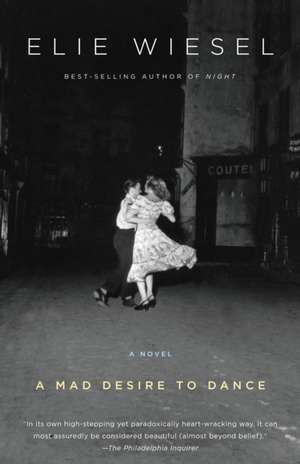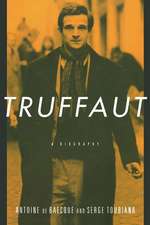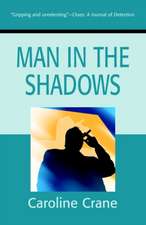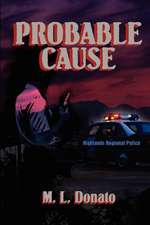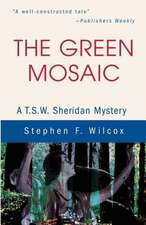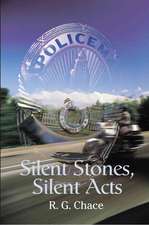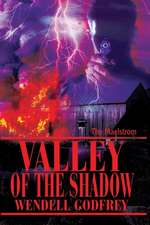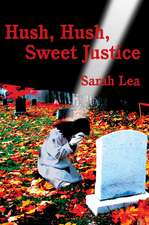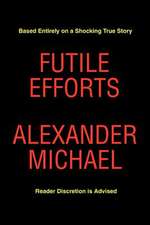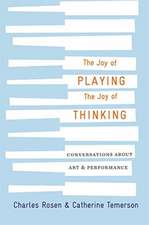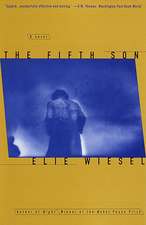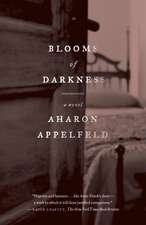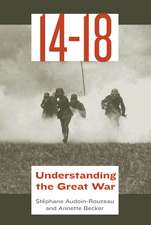A Mad Desire to Dance
Autor Elie Wiesel Traducere de Catherine Temersonen Limba Engleză Paperback – 31 mar 2010
A European expatriate living in New York, Doriel suffers from a profound sense of desperation and loss. His mother, a member of the Resistance, survived World War II only to die soon after in France in an accident, together with his father. Doriel was a hidden child during the war, and his knowledge of the Holocaust is largely limited to what he finds in movies, newsreels, and books. Doriel’s parents and their secrets haunt him, leaving him filled with longing but unable to experience the most basic joys in life. He plunges into an intense study of Judaism, but instead of finding solace, he comes to believe that he is possessed by a dybbuk.
Surrounded by ghosts, spurred on by demons, Doriel finally turns to Dr. Thérèse Goldschmidt, a psychoanalyst who finds herself particularly intrigued by her patient. The two enter into an uneasy relationship based on exchange: of dreams, histories, and secrets. And despite Doriel’s initial resistance, Dr. Goldschmidt helps bring him to a crossroads—and to a shocking denouement.
“In its own high-stepping yet paradoxically heart-wracking way, [Wiesel’s novel] can most assuredly be considered beautiful (almost beyond belief).”—The Philadelphia Inquirer
Preț: 104.07 lei
Nou
Puncte Express: 156
Preț estimativ în valută:
19.92€ • 20.57$ • 16.58£
19.92€ • 20.57$ • 16.58£
Carte disponibilă
Livrare economică 04-18 martie
Preluare comenzi: 021 569.72.76
Specificații
ISBN-13: 9780805212129
ISBN-10: 0805212124
Pagini: 271
Dimensiuni: 115 x 218 x 25 mm
Greutate: 0.29 kg
Editura: SCHOCKEN BOOKS INC
ISBN-10: 0805212124
Pagini: 271
Dimensiuni: 115 x 218 x 25 mm
Greutate: 0.29 kg
Editura: SCHOCKEN BOOKS INC
Notă biografică
Elie Wiesel is the author of more than fifty works of fiction and nonfiction, including his best-selling memoir Night. He has been awarded the United States Congressional Gold Medal, the Presidential Medal of Freedom, the rank of Grand Croix in the French Legion of Honor, and an honorary knighthood by the Queen of England. In 1986 he received the Nobel Peace Prize. Since 1976, he has been Andrew W. Mellon Professor in the Humanities at Boston University.
Extras
She has dark eyes and the smile of a frightened child. I searched for her all my life. Was it she who saved me from the silent death that characterizes resignation to solitude? And from madness in its terminal phase, terminal as we refer to cancer when incurable? Yes, the kind of madness in which one can find refuge, if not salvation?
Madness is what I’ll talk to you about—madness burdened with memories and with eyes like everyone else’s, though in my story the eyes are like those of a smiling child trembling with fear.
You’ll ask: Is a madman who knows he’s mad really mad? Or: In a mad world, isn’t the madman who is aware of his madness the only sane person? But let’s not rush ahead. If you had to describe a madman, how would you portray him? As a marblefaced stranger? Smiling but without joy, his nerves on edge; when he goes into a trance, his limbs move about and all his thoughts collide; time and again, he has electrical discharges, not in his brain but in his soul. Do you like this portrait? Let’s continue. How can we talk about madness except by using the specific language of those who carry it within themselves? What if I told you that within each of us, whether in good health or bad, there is a hidden zone, a secret region that opens out onto madness? One misstep, one unfortunate blow of fate, is enough to make us slip or flounder with no hope of ever rising up again. Careless mistakes, an impaired memory or errors of judgment, can provoke a series of falls. It then becomes impossible to make ourselves understood by those we call—rather foolishly—kindred souls. If you will not grant me this, I will have a serious problem, but you must not feel sorry for me. Tears sometimes leave furrows, but never very deep ones—in any case, not deep enough.
There, this is what you have to know for a start.
That said, since I’m eager to tell you everything, you should know that I’ll be telling you this story without any concern for chronology. You’ll be made to discover many different periods of time and many different places in a haphazard fashion. What can I say? The madman’s time is not always the same as the
so-called normal man’s.
For instance, let’s begin this narrative five years ago, in the office of Thérèse Goldschmidt, a healer of souls, well paid—I’ll tell you how well later—thanks to her vast knowledge. She expects to prod me into knowing the dark, innermost recesses of my ego, in order to help me live with myself without my dybbuk, but that’s an assumption to which I plan to return.
Later on I’ll talk to you about Thérèse; I’ll talk about her at length. Inevitable Thérèse, there is no way around her. She’s the one who made me talk. It’s her profession. She spends her life probing the unconscious—that strongbox and trash bin of knowledge and experience, those subterranean archives that can
and must be deciphered—and asking childish or harebrained questions. And in my case, these questions summoned not answers but stories.
Why do people make fun of madmen? Because they upset people? Didn’t Molière mock the hypochondriac? Doesn’t the man who believes he is ill need treatment?
Am I way off the beam? I don’t think I’m completely irrational. Is being mad being disabled? Can one speak of a gana mad desire to dance grened mind, of thought beaten to death, of a mutilated, damned soul? Can one be mad in happiness as in misfortune? Can someone take vows of madness as one takes religious vows, or devotes one’s life to poetry? Can a person slip breathlessly into madness with a slow, muffled tread, as if to avoid disturbing some secret demon feigning absence or asceticism? At times I’m afraid of shutting my eyes, for I see an unreal world with its dead. I open them again and fear has not left me. Madness may just be a sensation resonant with futility: as in Franz K.’s castle, we are waiting on the landing, in front of a closed door, for something that has already happened and will paradoxically happen too late. Am I insane? Thérèse was going to tell me. Does that word bother you? You would rather not use it anymore? I have others to offer you: disturbed, unbalanced, crazy, unhinged, nuts, loony, daft, demented, maladjusted, retarded, half-witted. Am I a paranoiac, a schizophrenic, a hysteric, or a neurotic? Do I just have an ordinary inferiority or guilt complex that a simple antidepressant
could cure? That’s possible. Am I guilty of having freely abused my freedom? Or of having simply lived a life that wasn’t mine by succumbing to the torture of both excessively vague despair and excessively transparent hope—thus, of having survived thanks to my madness, in its various phases and darkest depths? But who is to say whether guilt and madness are compatible or incompatible? And who decides that I’m not entitled to both madness and despair? That madmen are beyond redemption, thus hopelessly condemned, except in the privileged area of art? Van Gogh, before dying, whispered: “Sadness will last forever.” Sadness. No. Madness lasts much longer. Tolstoy said that thinking about the future is the beginning of madness, but Maimonides said the world would be saved by madmen. Which of the two will succeed in guiding me to a different reality?
I thought: Thérèse will help me; she’ll save me. She has a degree. This is her work, her goal, her mission. To rescue by listening, through words. Open doors. Rummage around in the darkness. That’s not easy in my case. She admitted as much. Can madness, like memory, be forced open? Difficult, I’m told. Madness is both beneficial and subversive: it takes a path that constantly changes directions; stumbles as it rises; tells lies while shouting “believe me”; forges ahead while stepping back; aims to please and displease simultaneously; seeks the company of others as a way of sublimating solitude. It searches out the origins of Creation in order to sink into eschatology. Didn’t Kleist, the great mad poet, describe existence as a bridge going from nowhere to nowhere? And, he added, it is hard to live between two nowheres. . .
I remember saying all this to the doctor. I talk to her, talk on, sometimes freely, sometimes at her command, of my mute delusions and fits of rage, managing to tame their violence momentarily. I tell her of my disappointments, my repressed ambitions and lived fantasies, the glow of my proud suns as well as their sudden blinding descents; I reveal some things to her in order to hide other truer and more intimate things, those that fill my thirsting soul with meaning as well as truth—and I quote Augustine, who said about the Maccabees that men learn how to die for truth! I call up old memories that will be born tomorrow or might never even come to light. But I make no mention of my conscience, within which everything breathes misfortune and illness. I can wait, she says, to reassure me. Sooner or later, we’ll get there. Later for whom? For the aging man that I am, who, like a beggar invited to the feast of the gods, implores the future for the alms of a few years?
He remembers, yes, the patient remembers. As a child, he feared being abducted by thieves. And one night, in a waking dream no doubt, the abduction did take place. Strangers broke into his bedroom; a tall, mustached man and a heavy-breasted woman lifted him up. He wanted to cry out for help, but no sound came from his throat. A second later, he found himself a mad desire to dance under thick blankets, in a wagon pulled by two frenzied horses. And the heavy-breasted woman said to him: “It is not you we are taking away, but years off your life; we’ll sell them at the market.”
Another dream, given the therapist loves dreams: I’m traveling by plane. The captain announces that due to mechanical problems, he has to make a sea landing. Cries of anguish inside the aircraft. A child bursts into tears. His mother can’t pacify him. Stroke of luck: the aircraft lands on an island. A jubilant crowd welcomes us with strange dances. Speeches are made that no one understands. A woman tries to lead me away; her bloodstained eyes blot out her face; I resist. I say to myself: she’s a witch or she’s mad, stark raving mad; mad as a hatter; they’re all mad. I’m right. Law doesn’t rule here; madness does. It has seized power. I look for the aircraft; it has disappeared, sunk into the sea. The pilot? Gone as well, along with the passengers, possibly tortured, punished, sacrificed. And all of them strangers. I didn’t exchange a single word with them. And what if it was a conspiracy? And they had set this trap for me? The woman says: “We’re in the theater, we’re putting on a play about madness. It’s a world overrun by madness. Everyone has a part. And so do you. You can choose: you can be the executioner or the condemned man.” Overcome with panic, breathing with difficulty, I cry out: “I refuse, do you hear? I refuse.” The woman insists. She calls for help. A bare-chested maniac grabs me by the hair. He yells: “You’re in our country, so obey! If you don’t, you’ll wake up beheaded!” I reply: “No, it’s my dream and you’re all in it; I have the right to drive you out.”
And the dreamer woke up in a sweat.
Why these nightmares, Doctor? Dreams, that famous product of and guide to the unconscious, that’s your area of predilection; here you find your bearings as you do in your bedroom. Please explain: Why, when I shut my eyes, do I always have the feeling of being in hostile territory?
Another dream: I’m a child again and I hear a voice that says: “You see that road; it will lead you to God. Run, my boy, run. God is waiting for you at the far end!” So I run until I’m out of breath; I run to get there as fast as I can. But when I get to the end of the road, the voice says: “You’re mistaken, child; God is waiting for you at the other end.” Gathering up all the strength I have left, I retrace my steps—but the voice has fallen silent. And the child cries out: “Where are you, Lord?” No answer. “And what about the voice I heard, where is it?” No answer. Then I remember a book I never part with. I start to leaf through it. And on page 13 I read: “God is also the road that leads you forward and backward.” Commentary: “If you really wish to love Him, you must sacrifice reason, human knowledge of things and beings.”
Did I really go astray in my words as in my life? At my age, this is very possible, indeed normal. At any rate, even if she thinks it, Thérèse doesn’t criticize me. Besides, I can get away with anything; I’m not ill for nothing.
My “healer” often frightens me, as I frighten myself: I’m afraid of saying too much or concealing everything—in short, of emptying myself of what I am, a kind of madman whose soul has been amputated, in search of his excessively rich and burdensome past, so he won’t see it extinguished before his death. But that madman’s past no longer exists; thieves have taken it to a doomed city, wiped out by the blood-soaked rays of a violent, crimson twilight. There every woman is a goddess, a young, redheaded goddess with slender, soft hands, who prevents joys from being eradicated by hatred, the sound of a kiss from becoming a roar from hell, and the melodious voices of happy children from turning into howls. But this woman, this goddess, has a face like no other, a face with the eyes of a child, a smiling child who is afraid of me.
Sitting on my stool, I can sometimes spend hours staring into a mad desire to dance the void in the hope of filling it with the sand borne by the tears of widows and orphans, or the laughter of beggars inviting happiness only to flee from it as soon as it comes; I then have the feeling that I know everything but understand nothing, or else that I know nothing but understand things that others fail to comprehend.
Moreover, everything happens to me yet everything passes; I retain nothing. Stubbornly resistant to childish happiness and shame, a victim and author of hallucinations both morbid and funny, eager for shortcuts, I want to think of myself as impervious to how long things last. Visions and images burst under my eyelids only to be instantly dispelled, burning hot. Memory moves forward or backward in fits and starts. I am stricken with nausea and a splitting headache. Constant dizziness, unremitting and oppressive. I speak when I am silent; I am silent when I howl. Past and future merge. In a flash the familiar world capsizes; as for me, where do I fit in? With me everything occurs in spasms: spasms of anger, of decisions, of desires that last only an instant. Oh, if I could only become a cloud set on fire by the sun, a torrent that knocks down powerful armies in its path. If I could only unravel the web of dreams and phantasms that haunt me, disentangle time and duration in the consciousness of philosophers, the amused knowledge of psychologists, the lived experience of saints attracted by violence; might I be an epiphenomenon? A veiled reference from dead gods? Am I running toward the summit, or have I moved away from it with giant steps while keeping still? I am asked my name and I give a silly answer, that it’s a beautiful day when the sky is dark. Or I say I hear the heartrending laughter of the heavens through the shower of stars. And I say . . . the devil, I don’t know what I say anymore.
Often—though I don’t know since when or for how long— I have the feeling of living cut off from the world; no sound reaches me from the outside. The sighing of lovers, the moaning of sick people, the neighing of horses, the howling of wolves, the stealthily approaching heavy clouds: I see and hear nothing. I feel nothing. It is as if time is suspended, awaiting a sign to start up again. I am alone, irrevocably alone, because I am confined. But the next day, or the next minute, in my brain, there’s a crush of people gasping for breath, looking wild and cruel, running all over, heading for precipices. Or there’s the railway station, where frantic travelers insult one another in front of closed ticket offices and locked doors because they’ve missed their train, as though this is their last chance to escape an invisible enemy.
After these attacks, I tell myself that I’ll go crazy, that I already am. Then I am beset by a greater lucidity. I convince myself that it is I whom every torturer is hunting down, I whom every jailer curses. If I was still living at my uncle’s, I would wonder if I was possessed. Am I a target? And of whose dybbuk?
I am writing to you, my dear mother and father, because I know that sooner or later we will meet again. After a long, very long separation, we will be reunited. At least, I hope so. For this separation has lasted, lasted far too long, indeed for a whole lifetime, my life from before.
Everyone changes, but not you. You remain frozen in eternity, so young, so cheerful, in search of a future outlined on my features.
I am writing to you so you will know everything about me: who I am and what I’ll become. Will you recognize me? Do you know what I’ve been through, what I’ve acquired and lost, since your gaze rested upon me with tenderness and confidence for the last time? That gaze has now become mine. Together we’ll look for answers to the questions that define man and his destiny.
Do I still exist in your memory as you exist in mine?
I live in fear. The fear of disappointing you.
I won’t tell you about anything heroic or glorious. Only about things that appear simple and fill a threatened existence.
Like you, I didn’t experience the Nazi concentration camps. I found out about the Warsaw Ghetto uprising in 1943 and the liberation of Paris in 1944 from books. We suffered together through the deaths of my older sister and my little brother; we kept them shrouded in discreet silence but not in oblivion. The fear of lineups, the lump in one’s throat, resignation, terror, blows, death inside the barbed-wire fences—images, words found in the narratives of survivors. Thus, every now and then I smell the acrid, sickly sweet, repellent odor of burned flesh. And I feel nauseous. But when I think of the people’s jubilation on victory day, or three years later, for Israel’s declaration of independence, I feel like dancing in the street.
All these events came to me from afar, from outside. They glided over my consciousness like warm water, or like sand.
However, this isn’t what I would like to tell you about. With a bit of luck, everything I could tell you about took place mostly inside me. I imagine you have immense powers over me, but can you read what is not said aloud? Can you guess what the heart manages to conceal from the brain? Do you know what it’s like to feel madness in oneself as one feels blood flowing in one’s veins? A living kaleidoscope of colors and shapes, faces and destinies: Is it my being splitting in two? I feel I am simultaneously a child and an old man; do they hate each other? Not at all! Here they are embracing. At the edge of a river, I see myself on the opposite bank. One minute I am living among biblical characters, but a second later I am in the midst of a crowd applauding the takeoff of a spaceship bringing travelers to the moon of their dreams.
Wherever you are, you may be smiling and saying to each other with pride: Oh, what an imagination, eh? Only that’s not what it’s about. It’s about something much more serious.
I am writing to you because I love you very much. And also in order to prepare myself and prepare you for our inevitable
reunion. Will it be a bolted door or an opening?
From the Hardcover edition.
Madness is what I’ll talk to you about—madness burdened with memories and with eyes like everyone else’s, though in my story the eyes are like those of a smiling child trembling with fear.
You’ll ask: Is a madman who knows he’s mad really mad? Or: In a mad world, isn’t the madman who is aware of his madness the only sane person? But let’s not rush ahead. If you had to describe a madman, how would you portray him? As a marblefaced stranger? Smiling but without joy, his nerves on edge; when he goes into a trance, his limbs move about and all his thoughts collide; time and again, he has electrical discharges, not in his brain but in his soul. Do you like this portrait? Let’s continue. How can we talk about madness except by using the specific language of those who carry it within themselves? What if I told you that within each of us, whether in good health or bad, there is a hidden zone, a secret region that opens out onto madness? One misstep, one unfortunate blow of fate, is enough to make us slip or flounder with no hope of ever rising up again. Careless mistakes, an impaired memory or errors of judgment, can provoke a series of falls. It then becomes impossible to make ourselves understood by those we call—rather foolishly—kindred souls. If you will not grant me this, I will have a serious problem, but you must not feel sorry for me. Tears sometimes leave furrows, but never very deep ones—in any case, not deep enough.
There, this is what you have to know for a start.
That said, since I’m eager to tell you everything, you should know that I’ll be telling you this story without any concern for chronology. You’ll be made to discover many different periods of time and many different places in a haphazard fashion. What can I say? The madman’s time is not always the same as the
so-called normal man’s.
For instance, let’s begin this narrative five years ago, in the office of Thérèse Goldschmidt, a healer of souls, well paid—I’ll tell you how well later—thanks to her vast knowledge. She expects to prod me into knowing the dark, innermost recesses of my ego, in order to help me live with myself without my dybbuk, but that’s an assumption to which I plan to return.
Later on I’ll talk to you about Thérèse; I’ll talk about her at length. Inevitable Thérèse, there is no way around her. She’s the one who made me talk. It’s her profession. She spends her life probing the unconscious—that strongbox and trash bin of knowledge and experience, those subterranean archives that can
and must be deciphered—and asking childish or harebrained questions. And in my case, these questions summoned not answers but stories.
Why do people make fun of madmen? Because they upset people? Didn’t Molière mock the hypochondriac? Doesn’t the man who believes he is ill need treatment?
Am I way off the beam? I don’t think I’m completely irrational. Is being mad being disabled? Can one speak of a gana mad desire to dance grened mind, of thought beaten to death, of a mutilated, damned soul? Can one be mad in happiness as in misfortune? Can someone take vows of madness as one takes religious vows, or devotes one’s life to poetry? Can a person slip breathlessly into madness with a slow, muffled tread, as if to avoid disturbing some secret demon feigning absence or asceticism? At times I’m afraid of shutting my eyes, for I see an unreal world with its dead. I open them again and fear has not left me. Madness may just be a sensation resonant with futility: as in Franz K.’s castle, we are waiting on the landing, in front of a closed door, for something that has already happened and will paradoxically happen too late. Am I insane? Thérèse was going to tell me. Does that word bother you? You would rather not use it anymore? I have others to offer you: disturbed, unbalanced, crazy, unhinged, nuts, loony, daft, demented, maladjusted, retarded, half-witted. Am I a paranoiac, a schizophrenic, a hysteric, or a neurotic? Do I just have an ordinary inferiority or guilt complex that a simple antidepressant
could cure? That’s possible. Am I guilty of having freely abused my freedom? Or of having simply lived a life that wasn’t mine by succumbing to the torture of both excessively vague despair and excessively transparent hope—thus, of having survived thanks to my madness, in its various phases and darkest depths? But who is to say whether guilt and madness are compatible or incompatible? And who decides that I’m not entitled to both madness and despair? That madmen are beyond redemption, thus hopelessly condemned, except in the privileged area of art? Van Gogh, before dying, whispered: “Sadness will last forever.” Sadness. No. Madness lasts much longer. Tolstoy said that thinking about the future is the beginning of madness, but Maimonides said the world would be saved by madmen. Which of the two will succeed in guiding me to a different reality?
I thought: Thérèse will help me; she’ll save me. She has a degree. This is her work, her goal, her mission. To rescue by listening, through words. Open doors. Rummage around in the darkness. That’s not easy in my case. She admitted as much. Can madness, like memory, be forced open? Difficult, I’m told. Madness is both beneficial and subversive: it takes a path that constantly changes directions; stumbles as it rises; tells lies while shouting “believe me”; forges ahead while stepping back; aims to please and displease simultaneously; seeks the company of others as a way of sublimating solitude. It searches out the origins of Creation in order to sink into eschatology. Didn’t Kleist, the great mad poet, describe existence as a bridge going from nowhere to nowhere? And, he added, it is hard to live between two nowheres. . .
I remember saying all this to the doctor. I talk to her, talk on, sometimes freely, sometimes at her command, of my mute delusions and fits of rage, managing to tame their violence momentarily. I tell her of my disappointments, my repressed ambitions and lived fantasies, the glow of my proud suns as well as their sudden blinding descents; I reveal some things to her in order to hide other truer and more intimate things, those that fill my thirsting soul with meaning as well as truth—and I quote Augustine, who said about the Maccabees that men learn how to die for truth! I call up old memories that will be born tomorrow or might never even come to light. But I make no mention of my conscience, within which everything breathes misfortune and illness. I can wait, she says, to reassure me. Sooner or later, we’ll get there. Later for whom? For the aging man that I am, who, like a beggar invited to the feast of the gods, implores the future for the alms of a few years?
He remembers, yes, the patient remembers. As a child, he feared being abducted by thieves. And one night, in a waking dream no doubt, the abduction did take place. Strangers broke into his bedroom; a tall, mustached man and a heavy-breasted woman lifted him up. He wanted to cry out for help, but no sound came from his throat. A second later, he found himself a mad desire to dance under thick blankets, in a wagon pulled by two frenzied horses. And the heavy-breasted woman said to him: “It is not you we are taking away, but years off your life; we’ll sell them at the market.”
Another dream, given the therapist loves dreams: I’m traveling by plane. The captain announces that due to mechanical problems, he has to make a sea landing. Cries of anguish inside the aircraft. A child bursts into tears. His mother can’t pacify him. Stroke of luck: the aircraft lands on an island. A jubilant crowd welcomes us with strange dances. Speeches are made that no one understands. A woman tries to lead me away; her bloodstained eyes blot out her face; I resist. I say to myself: she’s a witch or she’s mad, stark raving mad; mad as a hatter; they’re all mad. I’m right. Law doesn’t rule here; madness does. It has seized power. I look for the aircraft; it has disappeared, sunk into the sea. The pilot? Gone as well, along with the passengers, possibly tortured, punished, sacrificed. And all of them strangers. I didn’t exchange a single word with them. And what if it was a conspiracy? And they had set this trap for me? The woman says: “We’re in the theater, we’re putting on a play about madness. It’s a world overrun by madness. Everyone has a part. And so do you. You can choose: you can be the executioner or the condemned man.” Overcome with panic, breathing with difficulty, I cry out: “I refuse, do you hear? I refuse.” The woman insists. She calls for help. A bare-chested maniac grabs me by the hair. He yells: “You’re in our country, so obey! If you don’t, you’ll wake up beheaded!” I reply: “No, it’s my dream and you’re all in it; I have the right to drive you out.”
And the dreamer woke up in a sweat.
Why these nightmares, Doctor? Dreams, that famous product of and guide to the unconscious, that’s your area of predilection; here you find your bearings as you do in your bedroom. Please explain: Why, when I shut my eyes, do I always have the feeling of being in hostile territory?
Another dream: I’m a child again and I hear a voice that says: “You see that road; it will lead you to God. Run, my boy, run. God is waiting for you at the far end!” So I run until I’m out of breath; I run to get there as fast as I can. But when I get to the end of the road, the voice says: “You’re mistaken, child; God is waiting for you at the other end.” Gathering up all the strength I have left, I retrace my steps—but the voice has fallen silent. And the child cries out: “Where are you, Lord?” No answer. “And what about the voice I heard, where is it?” No answer. Then I remember a book I never part with. I start to leaf through it. And on page 13 I read: “God is also the road that leads you forward and backward.” Commentary: “If you really wish to love Him, you must sacrifice reason, human knowledge of things and beings.”
Did I really go astray in my words as in my life? At my age, this is very possible, indeed normal. At any rate, even if she thinks it, Thérèse doesn’t criticize me. Besides, I can get away with anything; I’m not ill for nothing.
My “healer” often frightens me, as I frighten myself: I’m afraid of saying too much or concealing everything—in short, of emptying myself of what I am, a kind of madman whose soul has been amputated, in search of his excessively rich and burdensome past, so he won’t see it extinguished before his death. But that madman’s past no longer exists; thieves have taken it to a doomed city, wiped out by the blood-soaked rays of a violent, crimson twilight. There every woman is a goddess, a young, redheaded goddess with slender, soft hands, who prevents joys from being eradicated by hatred, the sound of a kiss from becoming a roar from hell, and the melodious voices of happy children from turning into howls. But this woman, this goddess, has a face like no other, a face with the eyes of a child, a smiling child who is afraid of me.
Sitting on my stool, I can sometimes spend hours staring into a mad desire to dance the void in the hope of filling it with the sand borne by the tears of widows and orphans, or the laughter of beggars inviting happiness only to flee from it as soon as it comes; I then have the feeling that I know everything but understand nothing, or else that I know nothing but understand things that others fail to comprehend.
Moreover, everything happens to me yet everything passes; I retain nothing. Stubbornly resistant to childish happiness and shame, a victim and author of hallucinations both morbid and funny, eager for shortcuts, I want to think of myself as impervious to how long things last. Visions and images burst under my eyelids only to be instantly dispelled, burning hot. Memory moves forward or backward in fits and starts. I am stricken with nausea and a splitting headache. Constant dizziness, unremitting and oppressive. I speak when I am silent; I am silent when I howl. Past and future merge. In a flash the familiar world capsizes; as for me, where do I fit in? With me everything occurs in spasms: spasms of anger, of decisions, of desires that last only an instant. Oh, if I could only become a cloud set on fire by the sun, a torrent that knocks down powerful armies in its path. If I could only unravel the web of dreams and phantasms that haunt me, disentangle time and duration in the consciousness of philosophers, the amused knowledge of psychologists, the lived experience of saints attracted by violence; might I be an epiphenomenon? A veiled reference from dead gods? Am I running toward the summit, or have I moved away from it with giant steps while keeping still? I am asked my name and I give a silly answer, that it’s a beautiful day when the sky is dark. Or I say I hear the heartrending laughter of the heavens through the shower of stars. And I say . . . the devil, I don’t know what I say anymore.
Often—though I don’t know since when or for how long— I have the feeling of living cut off from the world; no sound reaches me from the outside. The sighing of lovers, the moaning of sick people, the neighing of horses, the howling of wolves, the stealthily approaching heavy clouds: I see and hear nothing. I feel nothing. It is as if time is suspended, awaiting a sign to start up again. I am alone, irrevocably alone, because I am confined. But the next day, or the next minute, in my brain, there’s a crush of people gasping for breath, looking wild and cruel, running all over, heading for precipices. Or there’s the railway station, where frantic travelers insult one another in front of closed ticket offices and locked doors because they’ve missed their train, as though this is their last chance to escape an invisible enemy.
After these attacks, I tell myself that I’ll go crazy, that I already am. Then I am beset by a greater lucidity. I convince myself that it is I whom every torturer is hunting down, I whom every jailer curses. If I was still living at my uncle’s, I would wonder if I was possessed. Am I a target? And of whose dybbuk?
I am writing to you, my dear mother and father, because I know that sooner or later we will meet again. After a long, very long separation, we will be reunited. At least, I hope so. For this separation has lasted, lasted far too long, indeed for a whole lifetime, my life from before.
Everyone changes, but not you. You remain frozen in eternity, so young, so cheerful, in search of a future outlined on my features.
I am writing to you so you will know everything about me: who I am and what I’ll become. Will you recognize me? Do you know what I’ve been through, what I’ve acquired and lost, since your gaze rested upon me with tenderness and confidence for the last time? That gaze has now become mine. Together we’ll look for answers to the questions that define man and his destiny.
Do I still exist in your memory as you exist in mine?
I live in fear. The fear of disappointing you.
I won’t tell you about anything heroic or glorious. Only about things that appear simple and fill a threatened existence.
Like you, I didn’t experience the Nazi concentration camps. I found out about the Warsaw Ghetto uprising in 1943 and the liberation of Paris in 1944 from books. We suffered together through the deaths of my older sister and my little brother; we kept them shrouded in discreet silence but not in oblivion. The fear of lineups, the lump in one’s throat, resignation, terror, blows, death inside the barbed-wire fences—images, words found in the narratives of survivors. Thus, every now and then I smell the acrid, sickly sweet, repellent odor of burned flesh. And I feel nauseous. But when I think of the people’s jubilation on victory day, or three years later, for Israel’s declaration of independence, I feel like dancing in the street.
All these events came to me from afar, from outside. They glided over my consciousness like warm water, or like sand.
However, this isn’t what I would like to tell you about. With a bit of luck, everything I could tell you about took place mostly inside me. I imagine you have immense powers over me, but can you read what is not said aloud? Can you guess what the heart manages to conceal from the brain? Do you know what it’s like to feel madness in oneself as one feels blood flowing in one’s veins? A living kaleidoscope of colors and shapes, faces and destinies: Is it my being splitting in two? I feel I am simultaneously a child and an old man; do they hate each other? Not at all! Here they are embracing. At the edge of a river, I see myself on the opposite bank. One minute I am living among biblical characters, but a second later I am in the midst of a crowd applauding the takeoff of a spaceship bringing travelers to the moon of their dreams.
Wherever you are, you may be smiling and saying to each other with pride: Oh, what an imagination, eh? Only that’s not what it’s about. It’s about something much more serious.
I am writing to you because I love you very much. And also in order to prepare myself and prepare you for our inevitable
reunion. Will it be a bolted door or an opening?
From the Hardcover edition.
Recenzii
Praise for A Mad Desire to Dance
“A soaring explanation of a soul devastated by horrorism in a world off its rocker, A Mad Desire to Dance cannot be called comfy, not by a long shot. But in its own highstepping yet paradoxically heart-wracking way, it can most assuredly be considered beautiful (almost beyond belief).”
-Judith Fitzgerald, The Philadelphia Inquirer
“Tales in A Mad Desire to Dance just pour out of the author like the Talmudic ma’ayan hamitgaber, the wellspring that never runs dry . . . Wiesel proves again that he is a master storyteller who can weave a complex tapestry of plots into an intricately poignant human portrait.”
-Ari L. Goldman, Moment magazine
“A Mad Desire to Dance is the novel Elie Wiesel was born–or more accurately, survived–to write . . . There are many truths buried in this book; that you have to work a little harder, dig a little deeper, to find them makes the experience all the more meaningful.”
-Curt Schleier, Milwaulkee-Wisconsin Journal Sentinel
“Elie Wiesel once more confirms his influence as a master storyteller who can weave an intricate narrative into a complex portrait of a man at once obliterated and remade.”
-M.E. Collins, Chicago Sun-Times
“Austerely written and . . . thought-provoking.”
-Mike Peed, The New York Times Book Review
“Elie Wiesel continues to be the ultimate witness to history’s worst enormity, and its fiercest moral voice for remembrance . . . [A Mad Desire to Dance] takes patience and close reading, but those who stay with it will derive a significant level of satisfaction . . . from the seemingly simple yet stirring reminder that love can soothe, even if it cannot completely heal, the most horrendous wounds.”
-Gerald Sorin, Haaretz
“Artfully developed . . . Wiesel is a master storyteller.”
-Alvin H. Rosenfeld, The New Leader
“Alternately rough and tender . . . A Mad Desire to Dance begins ominously and ends beautifully . . . No matter if your faith lies with science, religion, or both, A Mad Desire to Dance offers a tantalizing conversion experience for the philosopher in you.”
-Andrew Burstein, The Baton Rouge Advocate
“Vivid . . . This novel is filled with gorgeous prose.”
-Kevin O’Kelly, The Boston Globe
“A Mad Desire to Dance shows the sensibility of a literary wanderer who has not finished searching for answers to his original anguished questions . . . A reader willing to navigate the thickets will find rewards. The novel’s . . . satisfactions lie in a sense of shared responsibility between teller and listener, a confidential yet far-reaching partnership that began four decades ago with Night.”
-Donna Rifkind, The Washington Post
“The novel . . . ends on an affirmative note, a triumph of life’s dance of desire over the madness that is a living death. Philosophy meets psychology in this profound, often poetic novel.”
-Starred review, Kirkus
“It is once again a survivor’s memories . . . that will rivet readers . . . The terse personal vignettes are gripping . . . The secrets surprise you to the end.”
-Booklist
“Difficult but powerful . . . Wiesel handles the situation expertly, and . . . a multilayered narrative emerges: the journey through sadness and toward redemption; a meditation on the hand dealt to Holocaust survivors; and a valuable parable on the wages of human trauma. While the novel is not always easy sledding, there are ample rewards–intellectual and visceral–for the willing reader.”
-Publishers Weekly
And praise from France for A Mad Desire to Dance
“A Mad Desire to Dance reminds us, with force, that Wiesel’s writing is alive and strong. The master has once again found here a startling freshness.”
-Le Monde des Livres
“A genuine adventure that enriches the reader.”
-L’Eclaireur
“A Mad Desire to Dance [is] an interior adventure driven by the need to know–and the certitude–that only love can heal our most intimate wounds.”
-France Culture
From the Hardcover edition.
“A soaring explanation of a soul devastated by horrorism in a world off its rocker, A Mad Desire to Dance cannot be called comfy, not by a long shot. But in its own highstepping yet paradoxically heart-wracking way, it can most assuredly be considered beautiful (almost beyond belief).”
-Judith Fitzgerald, The Philadelphia Inquirer
“Tales in A Mad Desire to Dance just pour out of the author like the Talmudic ma’ayan hamitgaber, the wellspring that never runs dry . . . Wiesel proves again that he is a master storyteller who can weave a complex tapestry of plots into an intricately poignant human portrait.”
-Ari L. Goldman, Moment magazine
“A Mad Desire to Dance is the novel Elie Wiesel was born–or more accurately, survived–to write . . . There are many truths buried in this book; that you have to work a little harder, dig a little deeper, to find them makes the experience all the more meaningful.”
-Curt Schleier, Milwaulkee-Wisconsin Journal Sentinel
“Elie Wiesel once more confirms his influence as a master storyteller who can weave an intricate narrative into a complex portrait of a man at once obliterated and remade.”
-M.E. Collins, Chicago Sun-Times
“Austerely written and . . . thought-provoking.”
-Mike Peed, The New York Times Book Review
“Elie Wiesel continues to be the ultimate witness to history’s worst enormity, and its fiercest moral voice for remembrance . . . [A Mad Desire to Dance] takes patience and close reading, but those who stay with it will derive a significant level of satisfaction . . . from the seemingly simple yet stirring reminder that love can soothe, even if it cannot completely heal, the most horrendous wounds.”
-Gerald Sorin, Haaretz
“Artfully developed . . . Wiesel is a master storyteller.”
-Alvin H. Rosenfeld, The New Leader
“Alternately rough and tender . . . A Mad Desire to Dance begins ominously and ends beautifully . . . No matter if your faith lies with science, religion, or both, A Mad Desire to Dance offers a tantalizing conversion experience for the philosopher in you.”
-Andrew Burstein, The Baton Rouge Advocate
“Vivid . . . This novel is filled with gorgeous prose.”
-Kevin O’Kelly, The Boston Globe
“A Mad Desire to Dance shows the sensibility of a literary wanderer who has not finished searching for answers to his original anguished questions . . . A reader willing to navigate the thickets will find rewards. The novel’s . . . satisfactions lie in a sense of shared responsibility between teller and listener, a confidential yet far-reaching partnership that began four decades ago with Night.”
-Donna Rifkind, The Washington Post
“The novel . . . ends on an affirmative note, a triumph of life’s dance of desire over the madness that is a living death. Philosophy meets psychology in this profound, often poetic novel.”
-Starred review, Kirkus
“It is once again a survivor’s memories . . . that will rivet readers . . . The terse personal vignettes are gripping . . . The secrets surprise you to the end.”
-Booklist
“Difficult but powerful . . . Wiesel handles the situation expertly, and . . . a multilayered narrative emerges: the journey through sadness and toward redemption; a meditation on the hand dealt to Holocaust survivors; and a valuable parable on the wages of human trauma. While the novel is not always easy sledding, there are ample rewards–intellectual and visceral–for the willing reader.”
-Publishers Weekly
And praise from France for A Mad Desire to Dance
“A Mad Desire to Dance reminds us, with force, that Wiesel’s writing is alive and strong. The master has once again found here a startling freshness.”
-Le Monde des Livres
“A genuine adventure that enriches the reader.”
-L’Eclaireur
“A Mad Desire to Dance [is] an interior adventure driven by the need to know–and the certitude–that only love can heal our most intimate wounds.”
-France Culture
From the Hardcover edition.
Descriere
A searing exploration of a man haunted by the horrors of the 20th century, "AMad Desire to Dance" is a profound look at one man's journey into the darkestinterior of the soul.
